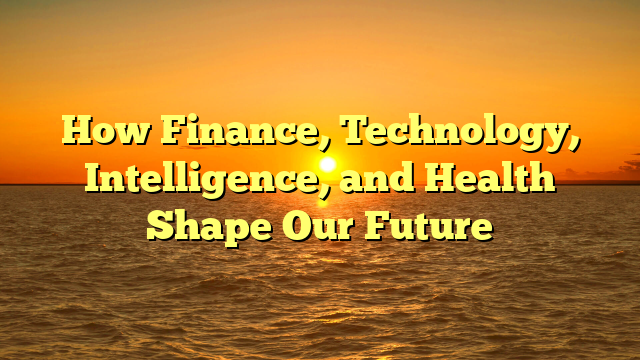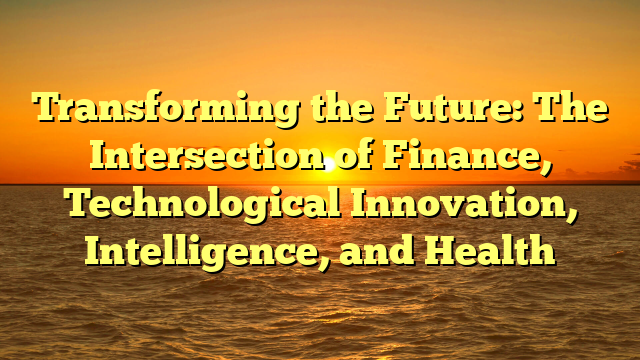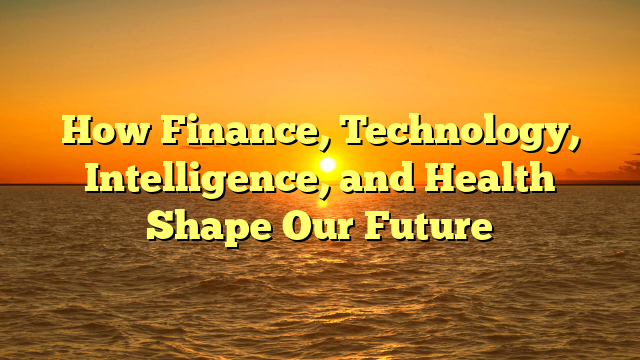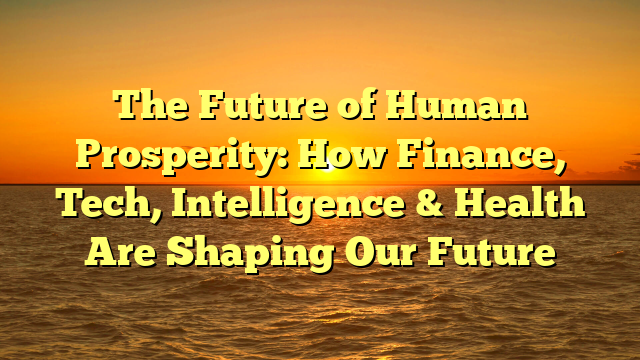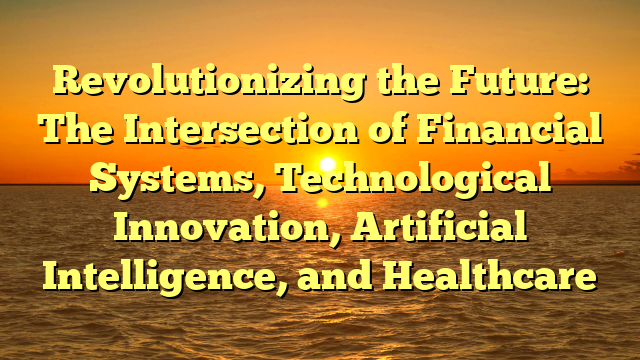
—
In today’s rapidly evolving world, the confluence of financial systems, technology, intelligence, and healthcare is fueling a new dimension. These once isolated sectors are now intertwined, shaping the foundation for a healthier future.
The Financial Sector Meets Technology
Banks and investment firms have integrated technology to transform their services. From mobile banking apps to cryptocurrency, finance is no longer confined to traditional methods.
AI algorithms are now leveraged for financial forecasting. These systems analyze massive datasets in real time, providing insights that were once unavailable.
Innovative platforms like Revolut are reshaping conventional banking by offering efficient financial services that are tailored to a tech-savvy generation.
The Role of Artificial Intelligence in Finance and Health
Artificial Intelligence is transforming both the finance and healthcare sectors. In finance, AI improves decision-making, reduces human error, and improves efficiency. In healthcare, AI is being leveraged for robotic surgery.
Think about an AI system that can analyze thousands of medical records and diagnose early signs of diseases such as cancer or Alzheimer’s. These smart tools reduce the need for manual procedures and expedite recovery time.
Similarly, in the financial world, AI trading bots can react to market changes in milliseconds, executing trades faster than any human ever could. situs yokubet is a game changer for investors and financial institutions alike.
The Rise of Smart Health Technologies
Fitness trackers have revolutionized personal healthcare. Devices like Whoop Strap track everything from sleep patterns to hydration.
These technologies not only empower individuals to take control of their health, but also generate valuable data that can be used by healthcare providers to personalize treatments.
Online doctor appointments have also become widely accepted, allowing users to connect with doctors from the safety of their homes. This trend was accelerated by the COVID-19 pandemic, but continues to grow due to its convenience.
Financial Intelligence and Wellness
Smart money management is increasingly important. With the rise of AI-driven financial tools, people can now track their spending, set budgets, and save smarter using dashboards that are interactive.
This not only supports financial health but also reduces stress — a key contributor to poor physical and mental health. Studies show that people who manage their finances effectively are more likely to enjoy better overall well-being.
Personal finance apps like Acorns help users get a grip on their money and make smart decisions. When combined with AI, these platforms become even more predictive.
Data Security and Ethical Concerns
With all these advancements come new challenges. Information protection is a major concern as more personal and financial data is stored online. Healthcare data, especially, is sensitive and must be protected against breaches.
AI, too, raises philosophical questions — such as how decisions are made, who is accountable, and how bias in data can lead to unfair outcomes. Transparency and regulation will be key to ensuring that technology serves all people responsibly.
A Unified Future
The fusion of finance, technology, intelligence, and health is not just a trend — it’s the future. Together, they are laying the foundation for a world where financial stability, smart technologies, intelligent systems, and well-being complement each other.
As we move forward, it’s essential to adopt these changes with a cautious approach. Governments, businesses, and individuals must work together to ensure these innovations are secure, accessible, and sustainable.
Conclusion
Ultimately, the interplay of finance, technology, intelligence, and health is fueling a new era of progress. The possibilities are boundless — from AI doctors and smart wallets to digital investments and wearable health trackers.
By leveraging these innovations, we can build a future that is not only financially intelligent, but also inclusive.
